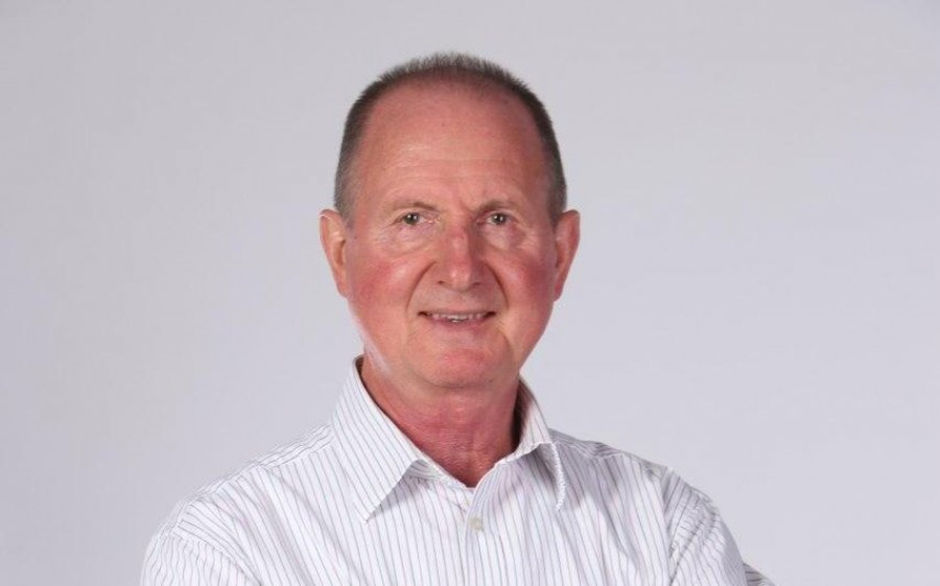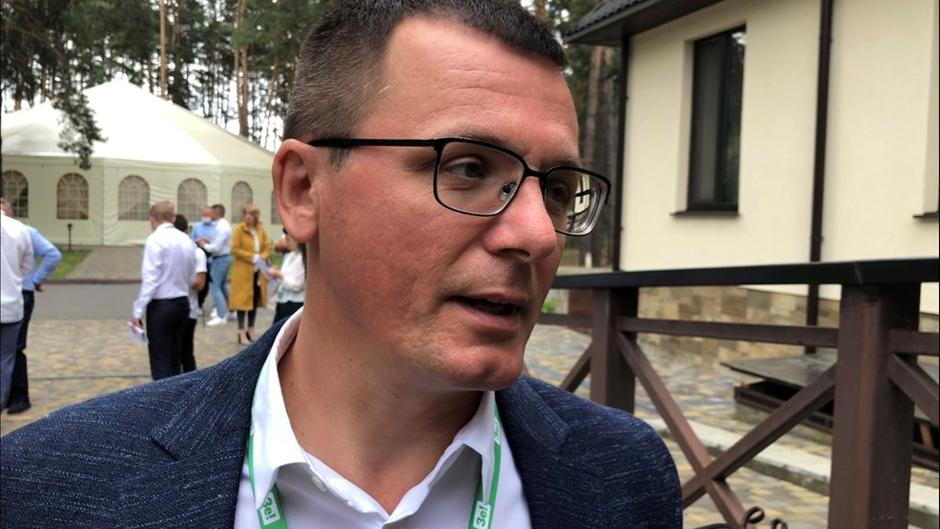56-й из 63-х банков Украины дошел до предела ликвидации: черниговский Поликомбанк стал жертвой строительных схем своих же владельцев – семьи Тарасовцев.
Этот маленький карманный банк был создан как инструмент для строительного бизнеса этой семьи. Однако проблемы в строительном бизнесе довели банк до неспособности отвечать нормам Нацбанка по капитализации и обеспечению кредитов ликвидными залогами, поскольку залогами здесь выступают многочисленные недострои Тарасовцев.
Так Поликомбанк оказался в замкнутом круге, созданном руками своих владельцев, вырваться из которого уже не сможет. Однако в результате исчезновения Поликомбанка Тарасовцы пострадают меньше всего, а вкладчики и бюджетники – больше всего: речь идет о выводе капитала из банка и исчезновении основных залогов. Объясняем, почему и как это произошло и к чему приведет.

Пока рука руку моет
История Поликомбанка началась в 1990 году, еще до провозглашения Независимости. Тогда Николай Тарасовец договорился с несколькими красными директорами Черниговщины о создании банка для обслуживания собственных интересов. Такие предприятия как Домостроитель, Черниговская макаронная абрика, Корюковская фабрика технических бумаг, фирмой «Сиверянка» и другими дали Тарасовцу деньги на выкуп Черниговского филиала советского АвтоВАЗбанка.
Вскоре среди основателей вновь Поликомбанка не осталось никого, кроме самого Тарасовца и его сыновей, который в течение нескольких лет, используя дополнительные эмиссии акций банка, размыл судьбы своих бывших инвесторов почти до нуля.
Далее Тарасовец наладил тесные отношения с местными властями, очевидно, имея и другой план: скупить как можно больше недвижимости Чернигова, в частности, лучшие земельные участки, чтобы самостоятельно строить на них первоначальное жилье, которое набирало популярность и было прибыльным бизнесом. Тарасовец и сам ушел во власть: некоторое время возглавлял Комиссию по вопросам управления и распоряжения объектами коммунальной собственности Черниговского облсовета.
У Николая Тарасовца есть два сына: Юрий и Александр. Они тоже совладельцы Поликомбанка. Кроме того, они владеют несколькими строительными компаниями, крупнейшая из которых – «ОСНОВА-БУД-7». В большей степени ею руководит Юрий, но она жемчужина империи Тарасовцев и одновременно – основной заемщик семейного Поликомбанка. По состоянию на этот год других более или менее значимых и прибыльных заемщиков этот банк не имеет.

Этот факт указывает на два условия, при которых банк может выжить:
— «ОСНОВА-БУД-7» будет существовать, пока Поликомбанк будет давать ей деньги;
— Поликомбанк будет существовать, пока «ОСНОВА-БУД-7» будет продавать жилье.
Невыполнение хотя бы одного условия ведет к краху всего бизнеса и их клиентов. Это уже происходит прямо сейчас, ведь «ОСНОВА-СТРОЙ-7» больше не может строить и продавать жилье. Таким образом, Поликомбанк уже почти мертв, поскольку владельцы банка и этой компании создали незаконную схему кредитования, связанную с банком компании.
Безоговорочным доказательством того, что Поликомбанк уже смело можно назвать бывшим, является требование Нацбанка провести докапитализацию и обеспечить кредиты ликвидными залогами. Но денег на докапитализацию у Тарасовцев нет и, кроме того, залога – объекты «ОСНОВА-БУД-7» не являются ликвидными, поскольку подавляющее большинство из них – недострои, то есть их рыночная стоимость не способна обеспечить реальные залоги.
Как это произошло?
Элиточка
Следует напомнить, что Юрий Тарасовец тоже был у власти: возглавлял Земельную Комиссию Черниговского горсовета, а также был депутатом. То есть был неким мини-олигархом местного разлива, как и его отец Николай. Все эти статусы предоставляли семье множество привилегий и преимуществ по сравнению с конкурентами. И семья стала этим пользоваться.
Одним из заметных объектов «ОСНОВА-СТРОЙ-7» стал элитный 16-этажный дом по улице Киевской, 7, который назвали ЖК. К 2020 году компания получила от покупателей деньги – были проданы все квартиры, хотя здание еще находилось на стадии строительства. Однако до сих пор в этом доме нет электричества, потому что его просто не провели.
Кроме того, у элитного дома нет отопления и газа, поскольку Тарасовцы так и не построили обещанную автономную систему. Так же здесь не будет и подземного паркинга.
1.png)
При этом фактор войны, на который можно было бы все списать, здесь еще не мог сыграть никакой роли, ведь по обещаниям Тарасовцев дом должен был принять жильцов еще в 2021 году. Но и этого еще не произошло.
Скорее всего, «ОСНОВА-БУД-7» уже никогда не сможет заживить дом и сдать его в эксплуатацию, поэтому людям, купившим в нем квартиры, остается надеяться, что финансирование возьмет на себя город. С учетом того, что все бюджеты всех городов сейчас дефицитны, а приоритеты у местных властей сместились на безопасность, сдача дома откладывается до лучших времен, которые неизвестно когда наступят.
Таким образом, этот объект, финансируемый через Поликомбанк, не является ликвидным залогом.
Все для людей
Второй неликвидный объект – микрорайон «Массаны» на улице Независимости. Это еще одна скандальная застройка «ОСНОВА-БУД-7».
Дело в том, что за уже приобретенное и сданное в эксплуатацию жилье компания Тарасовцев потребовала доплату в размере от 200 тысяч гривен. Это объяснялось тем, что подорожали строительные материалы. Однако известно, что дом был сдан как раз накануне войны, поэтому о каких доплатах теперь может идти речь, не совсем понятно.
На этом объекте, по свидетельству жителей, была использована схема, по которой покупатели подписывали договоры, которые не были заверены нотариально и назывались они «предварительными». Кто хотел подписать основной договор, был вынужден доплатить. В случае если кто-то отказывается с доплатой, поэтому любезно предлагали вернуть деньги, однако на момент покупки квадратный метр стоил чуть больше 10 тысяч гривен, а теперь – под 30 тысяч.
1.png)
Кроме того, как и с элитным ЖК Киев, в Масанах не работают лифты, а вокруг дома – болото: застройщик обещал проложить пешеходные дорожки, построить детские площадки, но не сделал этого и уже не сделает. Также не работает вентиляция.
И, наконец, третий объект «ОСНОВА-БУД-7» – ЖК «Александровский».
Этот комплекс должен был состоять сразу из нескольких домов. Все они уже проданы. А домов – нет. Частично их построили, но они попали под обстрел страны-террориста. Поэтому Тарасовцы снова попросили покупателей о доплатах.
Однако наибольшей проблемой стала перспектива сноса нескольких секций ЖК, поскольку они разместились на территории городского водозабора, то есть речь идет о незаконном выделении земли.
Спасайся, кто может
Как было сказано выше, «ОСНОВА-БУД-7» – это единственный крупный клиент Поликомбанка. И оба принадлежит тем же людям – Тарасовцам. Именно такие обстоятельства заставили Нацбанк как банковского регулятора присмотреться к Поликомбанку более внимательно.
В результате Поликомбанк проверяется помимо кредитования связанных с собственниками компаний на предмет незаконного и рискованного использования денег вкладчиков банка.
А дальше еще интереснее: НБУ применил в Поликомбанк меры влияния за нарушения в сфере финмониторинга и валютного законодательства. По данным НБУ, речь идет об отмывании денег.
Еще раньше Поликомбанк прекратил предоставлять независимым рейтинговым агентствам данные о своей деятельности, поэтому теперь этот банк выброшен из кредитного рейтинга и рейтинга надежности депозитов.

По этой причине можно утверждать, что простые вкладчики станут первыми пострадавшими. Несмотря на то, что Поликомбанк пока является участником Фонда гарантирования вкладов, выплаты из этого Фонда в случае ликвидации финучреждения компенсируются частично, однако и эти деньги вкладчики увидят очень и очень не скоро, пока не закончится ликвидационная процедура. Речь может идти о нескольких годах.
Вдобавок ко всему Поликомбанк прекратит выплаты зарплат бюджетникам и пенсиям. Как известно, этот банк в свое время добился права на обслуживание госучреждений Чернигова, но будет вынужден свернуть деятельность, поскольку главный бизнес Тарасовцев – «ОСНОВА-БУД-7» уже пришел в упадок.


